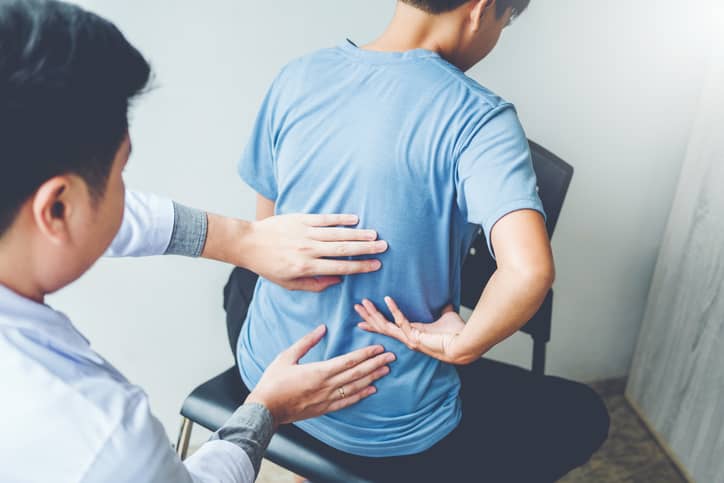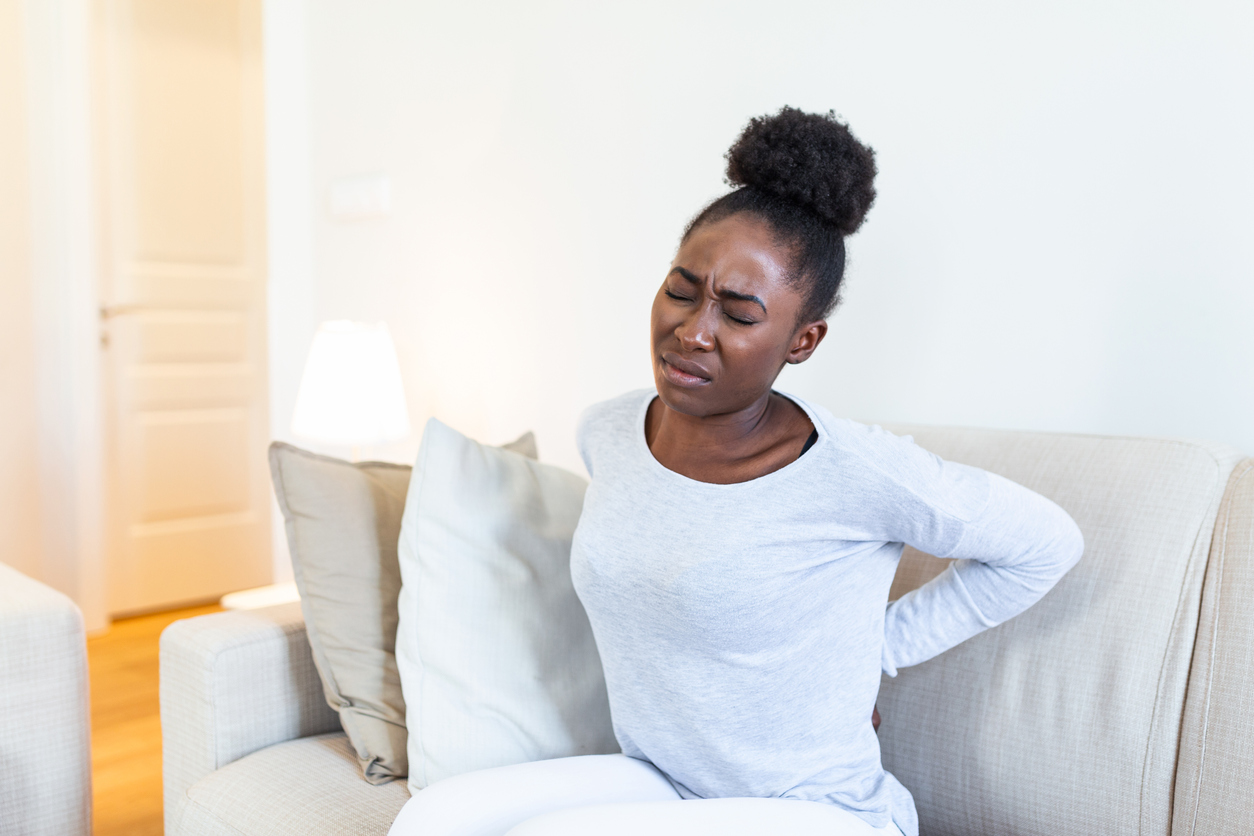Is back pain making you miserable? If so, you’re not alone.
Around 8 out of 10 people suffer from back pain at some point in their lives.
Back pain can be non-specific and mild, but it can also prevent you from carrying out everyday activities. Luckily, there are things you can do to treat back pain and you can do so from the comfort of your own home.
Here are some ways you can manage mild to moderate back pain, and tips for coping with non-specific backache.
How to treat back pain yourself
Keep moving
If you have really bad back pain, try and keep moving as much as you can. It may be tempting to sit or lie down to rest your back, but research shows that spending too much time in bed can make the pain worse. You may find it hard to get up and move about once you’ve spent a lot of time lying down, so try to stay active and keep up with your daily activities.
Certain types of exercise can help to relieve pain. The National Institute for Health and Care Excellence (NICE) recommends low-impact aerobic exercise like walking, swimming or yoga. You may also find it helpful to join an exercise group or a local pilates class. The important thing is to focus on activities that will strengthen the muscles and joints in your back.
You can find some useful strengthening exercises in this guide to managing back pain.
Take anti-inflammatory medication if advised
A doctor may recommend taking anti-inflammatory medications like ibuprofen to help relieve back pain. These drugs work by interfering with the chemicals that cause pain and swelling in your body, which means they can be effective at treating short-term or severe back pain.
Speak to your pharmacist or doctor for further guidance on whether to use these medications and how to get and use them.
Important
Non-steroidal anti-inflammatory tablets or capsules (NSAIDs), like ibuprofen, should be taken for no more than a week to 10 days at a time, unless you've spoken to a doctor. If you use a gel, mousse or spray form of the medication, don't use this for more than 2 weeks without talking to a doctor.
Take oral NSAIDs with food or a drink of milk to reduce the risk of irritating your stomach.
You should also talk to a doctor or pharmacist before taking NSAIDs if you’ve ever had:
- bleeding in your stomach
- a stomach ulcer
- a hole ( perforation) in your stomach
- a health problem that means you have an increased chance of bleeding.
People with the following conditions should also talk to a doctor before taking these medications:
- liver problems like fibrosis or cirrhosis
- heart disease or heart failure
- kidney failure
- Crohn's disease
- ulcerative colitis
- chickenpox or shingles
You should avoid NSAIDs if you’re pregnant, trying to get pregnant or have high blood pressure.
Your doctor may also prescribe you medications to protect your stomach if you’re over the age of 65.
You shouldn’t take these NSAIDs if you’re allergic to them, or you have experienced allergic symptoms like wheezing or skin reactions after taking another medication from this group.
You should call a doctor or ambulance immediately if you've taken more than the maximum dose of NSAIDs or if you experience any of the following side effects:
- nausea and vomiting
- pain in your stomach
- feeling tired or sleepy
- black poo and blood in your vomit – a sign of bleeding in your stomach
- ringing in your ears (tinnitus)
- difficulty breathing or changes in your heart rate (slower or faster)
- feeling generally unwell
Please see a doctor before taking these medicines and get a prescription, if required.
Work on your posture
If your back hurts, you may be tempted to hold yourself in an awkward position. But poor posture can put more strain on the muscles that support your spine, delaying your recovery and increasing the pain.
To prevent this, try to maintain good posture at all times. Focus on sitting upright. Sit in a comfortable chair that offers plenty of support for your back and shift position every 10 to 15 minutes to reduce strain on your muscles. This guide to common posture mistakes and fixes may help.
Try hot or cold therapies
Hot or cold therapies may also offer some relief from back pain. Hot or cold compresses can be bought at most pharmacies. You can also hold a hot water bottle or a bag of frozen peas to the affected area - wrap this in a thick towel before you place it against your back to avoid accidental injury.
Don’t forget your mental health
Back pain can be frustrating and unpleasant. If it lasts a long time, you may find you start to feel depressed or anxious about the pain. You may also find it difficult to motivate yourself, and this can affect your recovery.
If you’re struggling with negative emotions, try to remember that back pain is a common problem that normally passes after a few weeks or months. Staying active will often help with the pain, and regular exercise is key to making a full recovery.
You may find cognitive behaviour therapy (CBT) - a type of talking therapy - useful if you’re struggling to cope. It’s designed to help you manage pain by changing the way you think.




